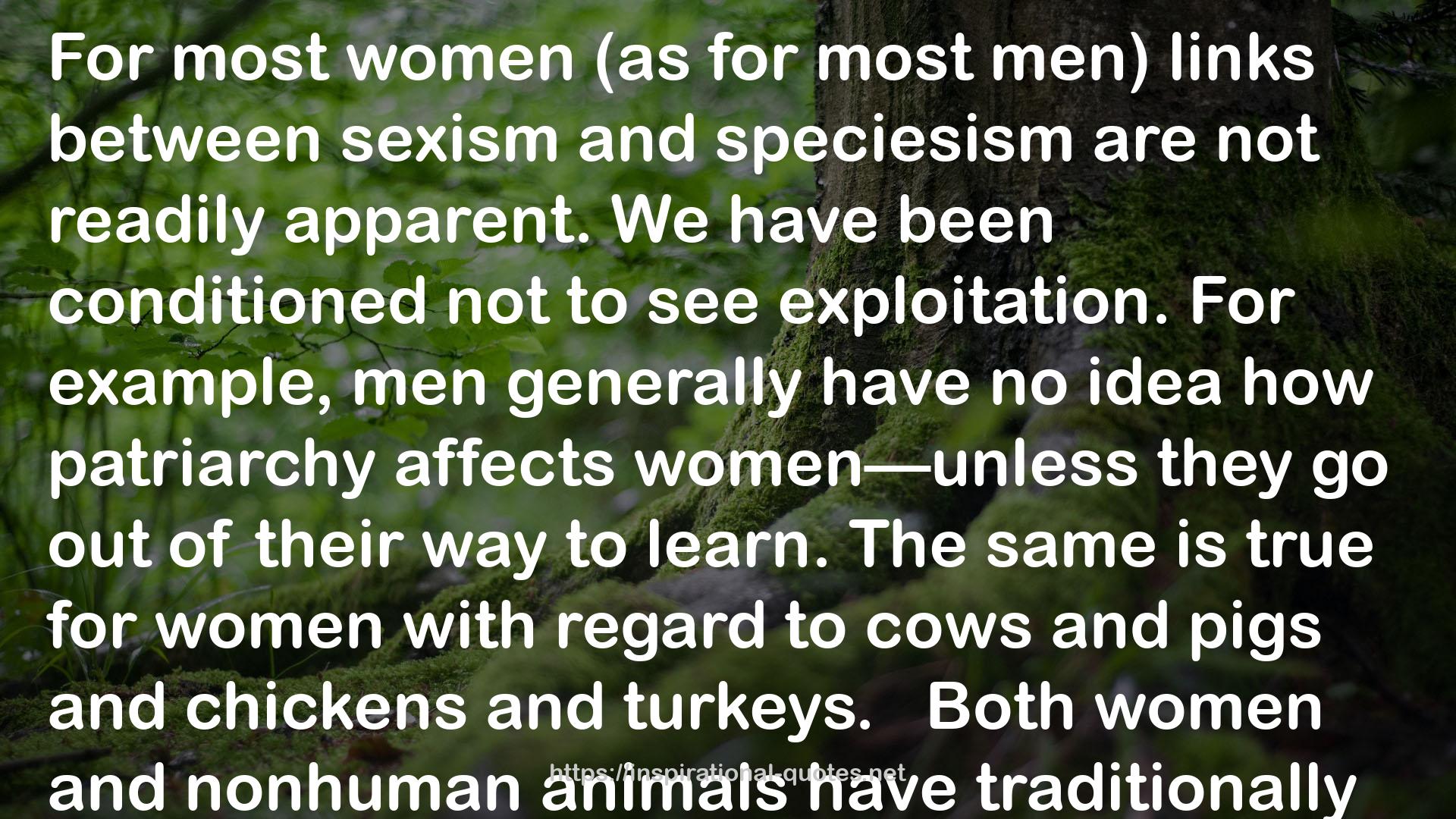" For most women (as for most men) links between sexism and speciesism are not readily apparent. We have been conditioned not to see exploitation.
For example, men generally have no idea how patriarchy affects women—unless they go out of their way to learn. The same is true for women with
regard to cows and pigs and chickens and turkeys.
Both women and nonhuman animals have traditionally been viewed as property—"things” to be owned and controlled by those in power. While the plight of women is linked with that of nonhuman animals through a single system of oppression, through their comparative powerlessness and invisibility, and through sexual exploitation, it is important to elucidate these similarities through concrete examples. Links between women and nonhuman animals are nowhere more apparent than through
the vulnerabilities of mothers and their young, and the control of pregnancies and offspring; this particular form of oppression is nowhere more blatant
than on factory farms. "
Image for Quotes
 the vulnerabilities of mothers and their young, and the control of pregnancies and offspring; this particular form of oppression is nowhere more blatant
the vulnerabilities of mothers and their young, and the control of pregnancies and offspring; this particular form of oppression is nowhere more blatantthan on factory farms." style="width:100%;margin:20px 0;"/>